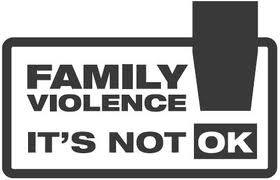What is Family Violence? A Psychological Perspective

What is Family Violence
Family Violence can be described as any act or omission committed by one member of the family which undermines the physical or emotional security of another person within that family unit. While historic conceptualisations of family violence focused upon physical or sexual abuse, more recently the concept of psychological or emotional abuse has been researched and also the omission or failure to act, in other words to neglect to protect ones children from harm or abuse.
Domestic Abuse
Types and rates of familial abuse
Abuse can occur within the family setting in a number of ways including: physical, sexual, emotional, psychological, financial and through neglect. Violence is always shocking but when it is perpetuated by someone within the home it is even more tragic. One would be forgiven for thinking that it was a relatively rare type of crime but unfortunately the statistics suggest otherwise. In Birmingham (England) two women every week are killed by a current or former partner. The murder rate in the UK is 1.3 per 100,000 people, and 42% of these homicides re the result of family violence. In 1999/2000 16.7% of homeless cases were due to domestic violence. (Britain).
More people are killed, physically assaulted, beaten and hit in their own homes by other family members than by anyone else, or anywhere else in society. (Gelles & Cornell, 1990). One survey conducted in the UK in 1999 revealed that although men were sigificantly more likely than women to be killed by a stranger, women were significantly more likely than men to be killed at home. One estimate suggests that in Britain in 1995 there were 6.6 million incidents of domestic assault and 7 million threats of intimidation.
The conception of family violence is most often thought of in terms of domestic abuse, usually with the male partner or husband being the aggressor. While this is statistically usually the case, it is important to acknoledge that other types of abuse occur. and there are other perpetuators of abuse. It is becoming more recognised that men can also fall victim to physical and emotional abuse by their female partners.
Outside of the context of marital abuse there is also abuse of children, siblings who abuse each other, abuse by extended family members such as uncles, cousins and grandparents. There are also a minority of cases where children abuse or even kill their parents. More recently work has been done into elder abuse. With society living longer, the burden of caring for elderly family members can become too much for some people, while others chose simply to abuse their vulnerability for their own gains.
Marcus Wesson

Ronald DeFeo Jr

Some Famous Cases of Inter-Family Violence
Susan Smith - An American woman sentenced to life in prison for the murder of her two young sons. Smith initially claimed that a black man had stolen her car and driven off with the children still inside. She later confessed to the murders.
Marcus Wesson - A religious fanatic who abused his children and fathered children with them with the goal of producing his own family cult. He was charged with nine counts of murder after he killed his daughters and the children he fathered with them in a massacre at their home after police were called over child custody disputes.
Ronald DeFeo Junior - This case started the myth of the Amityville Horror. DeFeo Junior probably suffering from paranois schizophrenia began to hear voices which commanded him to kill his entire family, which he duitifully did. Though he denied it initially, he confessed to the murders the following day. He is currently serving life in prison.
Kip Kinkel - An American high school student who snapped after years of being pressured by his parents to perform academically and on the sports field. He shot and killed his father after being suspended from school for having a weapon in his locker. He later shot his mother, and returned to school the following day to conduct a school shooting leaving two students dead.
Explanation / Theories of Family Violence
How and why family violence occurs is a complex question to answer. Various theorists have proposed a number of different explanations.
The Social Stress model is a Sociological explanation for family violence which argues that violence is an extreme expression of stress within the family unit. While it is certainly reasonable to assume that stress does and can lead to violence, it does not seem to explain the whole picture. Many families experience stress but not all resort to violence, so there must be more to the explanation than this.
Psychobiological explanations for family violence are concerned with the genetic inheritability of traits, and propose that a predisposition towards acting violently can be inherited (The inheritability of traits is something hotly debated in psychology and stands at the heart of the nature / nurture debate). They also consider the effect of ones hormones, especially testosterone, the activity of neurotransitters such as seratonin and dopamine, and they also consider the effects of environmental pollutants such as lead on behaviour.Whilst biological factors are certainly important they do not occur in a vacuum but rather they interact with the environment. It is problematic to ignore the social factors which may be important.
The social learning theory suggests that violence is a learned behaviur which is perpetuated by the person who sees it. This theory was first proposed by Bandura, a psychologist who conducted an experiment with children who viewed a doll (named a bobo doll) be physically abused, pushed and punched by adults, the children then began to imitate this violent behaviour once they were given access to the doll. In relation to family violence, this theory does not acknoledge the people who exprience abuse at home but then decide that they will never condone or use violence themselves.









